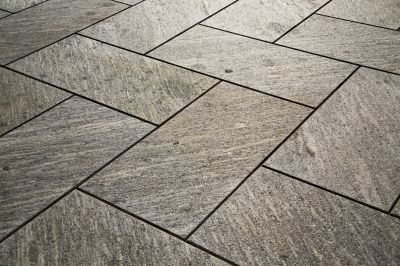Leading Products for Concrete Overlay Installations You Can Trust
Explore top-rated products designed to ensure durable and professional concrete overlay results for your project.
 Concrete overlay installations are a versatile solution for enhancing the appearance and durability of existing concrete surfaces. They are often used to refresh worn or stained concrete floors, driveways, patios, and interior surfaces, providing a smooth, attractive finish. The process involves applying a thin layer of overlay material over the existing concrete, which can be customized with various textures, colors, and patterns to suit aesthetic preferences.
Concrete overlay installations are a versatile solution for enhancing the appearance and durability of existing concrete surfaces. They are often used to refresh worn or stained concrete floors, driveways, patios, and interior surfaces, providing a smooth, attractive finish. The process involves applying a thin layer of overlay material over the existing concrete, which can be customized with various textures, colors, and patterns to suit aesthetic preferences.
Top Overall Option
Premium Concrete Overlay Topping
A high-quality overlay topping designed for excellent adhesion, flexibility, and durability. It provides a smooth surface suitable for decorative finishes and can be customized with stains, dyes, or textures. Ideal for both interior and exterior applications, it offers a reliable base for long-lasting concrete overlays.
Types of Products For Concrete Overlay Installations
Polymer-Modified Overlay
Enhanced with polymers for increased flexibility and adhesion, suitable for surfaces prone to cracking.
Acrylic-Based Overlay
Provides a fast-drying, easy-to-apply finish that accepts stains and dyes well.
Epoxy Overlay
Offers a highly durable, chemical-resistant surface ideal for industrial or garage floors.
Polyurethane Overlay
Known for its elasticity and UV resistance, suitable for outdoor applications.
Sand-Textured Overlay
Creates a slip-resistant surface with a textured finish for safety and aesthetic appeal.
Stained Overlay
Designed to be compatible with decorative stains for vibrant, artistic finishes.
Self-Leveling Overlay
Provides a smooth, even surface with minimal effort, ideal for uneven concrete.
Color-Embedded Overlay
Incorporates color pigments directly into the overlay for uniform coloration.
Textured Finish Overlay
Adds patterns or textures to enhance grip and visual interest.
Crack-Resistant Overlay
Formulated to accommodate minor movement and reduce cracking over time.
High-Build Overlay
Thicker application for covering imperfections and creating a substantial surface.
Decorative Microtopping
A thin, versatile overlay suitable for intricate decorative effects.
Sealer and Topcoat
Protects the overlay surface from stains, moisture, and wear.
Bonding Agent
Ensures strong adhesion between existing concrete and overlay material.
Polymer Additives
Mixed into overlays to enhance flexibility and durability.
Fast-Set Overlay
Designed for quick curing, suitable for time-sensitive projects.
Eco-Friendly Overlay
Formulated with low VOCs and environmentally conscious ingredients.
Popular Choices
Widely used for its quick drying time and ease of application, suitable for decorative finishes.
Favored for its enhanced flexibility and adhesion, fitting for various surface conditions.
Popular for industrial and garage floors due to its high durability and chemical resistance.
Preferred for creating smooth, even surfaces over uneven concrete substrates.
Chosen for decorative purposes, allowing patterns and textures to mimic natural materials.
A trending thin overlay for decorative and modern finishes with intricate details.
Commonly used to protect overlays and extend their lifespan.
Popular for areas prone to movement, helping to minimize cracks.
Offers consistent coloration for decorative purposes without the need for stains.
Increases safety on outdoor and high-traffic surfaces.
Used for covering imperfections and creating a substantial surface layer.
Gaining popularity for its versatility in creating artistic finishes.
Essential for ensuring strong adhesion in overlay applications.
Popular for UV resistance and glossy finishes in outdoor settings.
Ideal for projects requiring quick turnaround times.
Chosen for low VOC content and environmentally conscious formulations.
Increases aesthetic appeal with vibrant, customizable colors.
Choosing the right products for concrete overlay installations is essential to achieving a durable and visually appealing result. From specialized primers that ensure proper adhesion to decorative toppings that add texture and color, the selection of materials can significantly influence the outcome of the project. Proper surface preparation and the use of compatible products are key factors in ensuring longevity and satisfaction.
In addition to aesthetic considerations, functionality plays a vital role. Some overlays are designed to improve slip resistance, resist cracking, or withstand heavy foot or vehicle traffic. Whether you are a DIY enthusiast or a professional contractor, understanding the different types of overlay products and their specific applications can help in making informed decisions. Proper product selection can also streamline the installation process and reduce the need for future repairs.
Investing in quality products for concrete overlay installations can lead to a more durable, attractive, and long-lasting surface. It is advisable to evaluate product specifications, compatibility, ease of use, and the intended surface conditions before making a purchase. With a wide range of options available, selecting the right combination of primers, toppings, sealers, and additives will ensure a successful and satisfying project outcome.
Key Buying Considerations
- Compatibility with existing concrete surface to ensure proper adhesion.
- Intended use and load requirements, such as decorative, residential, or industrial applications.
- Flexibility and crack resistance features to accommodate surface movement.
- Application method and ease of use, especially for DIY projects.
- Drying and curing times to fit project schedules.
- Surface preparation requirements to optimize adhesion and finish quality.
- Color options and compatibility with staining or decorative techniques.
- Slip resistance features for outdoor or high-traffic areas.
- Weather resistance and suitability for outdoor environments.
- Sealing and finishing options to protect and enhance the overlay.
- Compatibility with additives or bonding agents for enhanced performance.
- Environmental conditions during application, such as temperature and humidity.
- Cost and availability of the product for project budgeting.
- Longevity and maintenance requirements for long-term satisfaction.
- Manufacturer reputation and product reviews for reliability.
